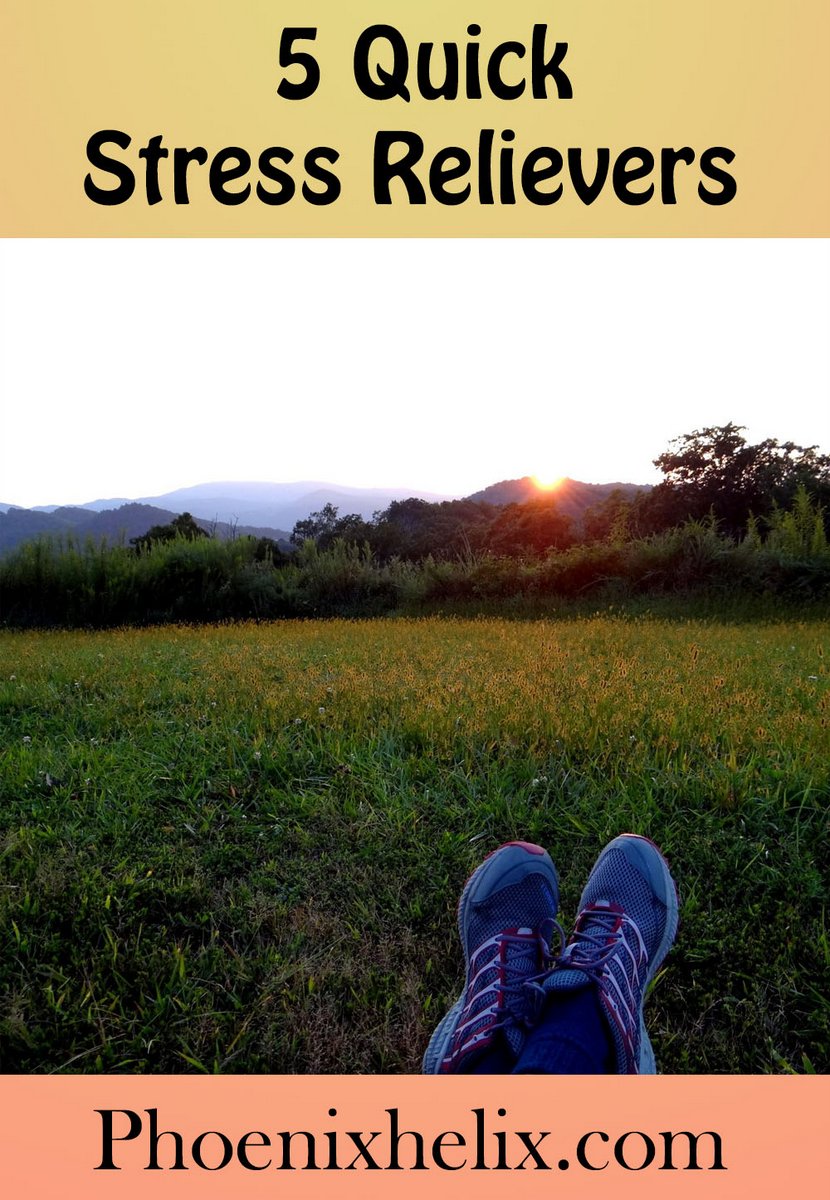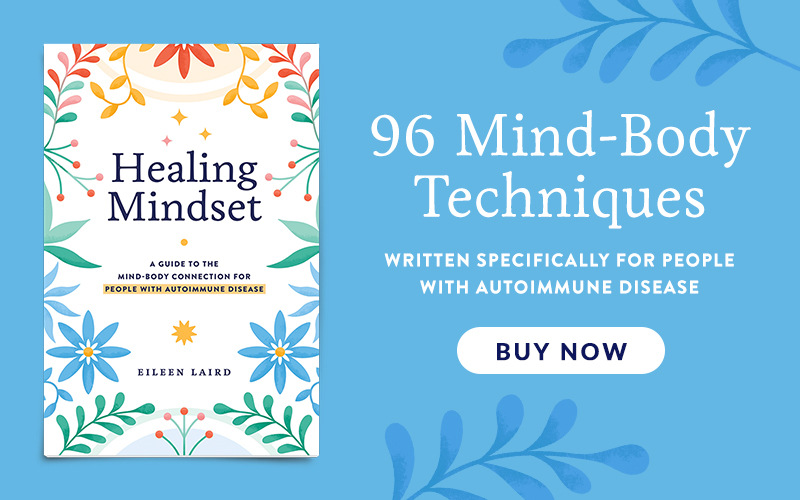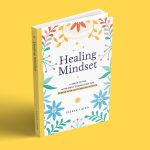
“Give your stress wings and let if fly away.”
~ Terri Guillemets
The Connection Between Stress and Autoimmune Health
Have you ever had a stress-induced autoimmune flare? You’re not alone. Research shows that stress increases the risk of developing autoimmune disease, exacerbates symptoms, and slows recovery. Thankfully, there are things we can do to interrupt this effect. It’s not about eliminating stress altogether – that would be impossible. It’s about managing our stress response. Quick interventions have power when applied regularly. Here are five of my favorites.
1. Listen to Nature Sounds
If you live or work in an area where there is greenspace nearby, go outside for 5 minutes. Close your eyes and listen. What do you hear? Is the wind rustling the leaves on the trees? Are the birds singing? Is there a brook babbling nearby? Soak in those natural sounds and feel your body begin to relax. If you don’t have access to nature or it’s noisy outside, don’t worry – you can also listen to nature sounds through your computer or smartphone. Research shows this is very effective. I love wearing earbuds so it’s an immersive experience, but you can also listen through regular speakers. There are entire libraries of nature sounds online. You can listen to a thunderstorm or gentle rain, ocean waves or a lapping lake, birds in the tropics or wolves in the mountains, or the simple sounds of a forest or creek. Here are some playlists on Spotify, Pandora, Insight Timer, and YouTube.
2. Give Yourself a Butterfly Hug
While hugging another person can be a great stress reliever, a butterfly hug is available to you anytime. There are actually two types of butterfly hugs, and they both tap the parasympathetic response (the relaxation branch of our nervous system). Try them both and see which you like best:
- Option 1: Lay your palms gently on your sternum, one hand on top the other like butterfly wings. This simple pressure can feel both calming and self-loving. Take a few deep breaths and soak in that feeling.
- Option 2: Cross your forearms over your chest, gently laying your palms on your upper chest or shoulders, whichever is most comfortable. Then alternately tap your palms on your body. This is called bilateral stimulation, and it soothes the brain and nervous system. Here’s a video tutorial.
3. Get Horizontal
While sleep can be a wonderful thing, I’m not talking about taking a nap. Lying down for a few minutes when we’re awake is a powerful stress intervention. It quickly turns off the stress response and activates the relaxation response. When I’m feeling especially ramped up, this works better for me than any other technique. It’s simple. Just lie on your back with your legs straight, knees bent, or with your legs up a wall. Choose whichever position is most comfortable and soothing to you.
4. Tune Into Your Senses
This is a quick way to get out of your head and into your body in the present moment.
- See: Look around you and find something simple and beautiful. It might be the way the sun is coming through the window, a favorite color in an unexpected place, a piece of art you haven’t noticed in a long time, the green of a nearby plant, etc.
- Hear: While many sounds can be soothing, I also like to take a few minutes to find a quiet place and bask in silence. It’s a rare experience in modern life, and once that’s highly beneficial for both our body and brain.
- Touch: Tune into points of contact where your body is being supported. Place your feet flat on the floor. Feel your hips where they meet the chair. Lay your hands flat on a surface. This is a grounding exercise that helps disperse anxiety.
- Smell: Go to your spice cupboard, open a jar, and gently inhale. I love doing this. I especially love the smells of nutmeg, ginger, and cardamom. If you like essential oils, carry a small bottle for relaxation-on-the-go. Lavender and chamomile are two relaxing options, but feel free to choose your own favorites.
- Taste: Did you know that eating can be a form of meditation? A classic exercise is take a raisin and notice things about it you never noticed before, paying attention to all of the senses including taste. You can do this with any food.
5. Ask Yourself, “Is It True?”
A lot of stress is caused by our thoughts. Sometimes we’re aware of them – for example, when we replay an argument in a loop in our head. But often, they’re running in the background below our awareness. The next time you feel stressed, pause and notice if there is a negative thought running through your mind. Then take a moment to question it. Ask yourself, “Is it true?” And try to see a different perspective on this situation.
When you first try to do this, it may be challenging because the mind is very defensive. When you ask the question, “Is it true?”, your mind may say, “Yes!” and proceed to show you a slideshow of all the reasons it’s true. But ask your mind to also show you how the opposite may also be true. This is called cognitive reframing. Here are some examples:
- I never do anything right. ~ Reframe: Actually, I do a lot of things right, and I don’t give myself enough credit. I’m not perfect, but no one is.
- I have too much to do and not enough time. ~ Reframe: I have time for what matters most. What can I let go?
- He/She shouldn’t have said or done that. ~ Reframe: I can’t control other people. I can only control myself. How can I take care of myself in this situation?
- There is nothing good in my life. ~ Reframe: I’m going through a tough time, and it’s blinding me to the good things. What is one thing I can be thankful for today?
One Final Note
Stress relievers don’t just relax us. They can rejuvenate. Fatigue is a common symptom of autoimmune disease, and when people are tired, they often try to power through rather than rest. The problem is that increases the stress on our bodies. By taking five minutes to do one of the above, you not only benefit from the relaxation of the moment, but you often get the gift of an energy boost afterward.
You May Also Be Interested In









